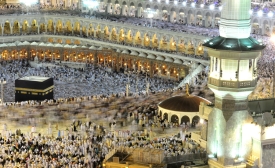oil

Although the Saudis like to emphasize their independence from U.S. policy, Western analysts say their actions thus far have not seriously challenged Western strategic interests in the region. The airstrikes in Yemen, for example, have not jeopardized the multinational nuclear talks.
As China's economic and political clout grows, so does the nation's role in the Middle East. The country has already overtaken the US as the largest oil importer. But can Beijing also bring stability to the region?
Saudi Arabia has a unique approach of vacillating between using hard and soft power. This approach is directly linked to Saudi Arabia being one of the wealthiest nations in the world, the home of the Islamic religion, and possessing vast oil reserves.

Najah Al-Osaimi considers Saudi Arabia's smart power strategy.
The plunging price of oil is a geopolitical game-changer.(...)For now, though, there are potential foreign policy benefits to the United States, presuming deft diplomacy and an effective Congress will take advantage of the situation.
What is power today? Who has it, and who will prevail? Right now, 19th-century hard power is confronting 21st-century soft power. Although hard power appears to have the edge, don’t write off the soft power, and especially economic might.
Some Caribbean and Central American countries are bracing for cutbacks in shipments of cut-rate oil from Venezuela, as Caracas struggles with sliding crude prices and a spiraling economic crisis.







